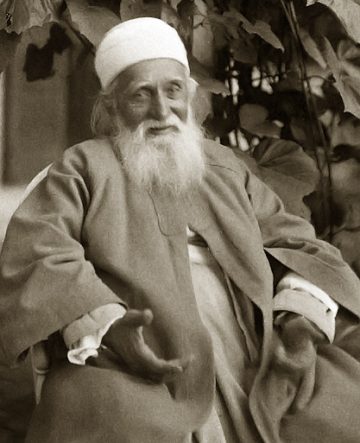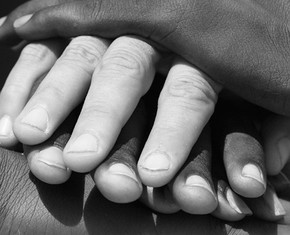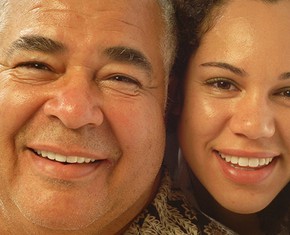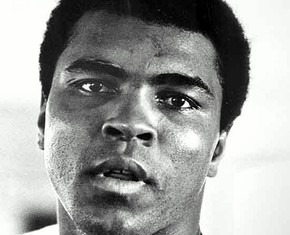The views expressed in our content reflect individual perspectives and do not represent the authoritative views of the Baha'i Faith.
Although Baha’is are serious, focused on their constant efforts to contribute to an ever-advancing civilization, the Baha’i teachings ask us to be joyful, too.
In fact, the Baha’i Writings place great emphasis on joy, laughter and human happiness:
The divine messengers come to bring joy to this earth, for this is the planet of tribulation and torment and the mission of the great masters is to turn men away from these anxieties and to infuse life with infinite joy. – Abdu’l-Baha, Divine Philosophy, pp. 69-70.
Even during his exile and imprisonment, Baha’u’llah—the prophet and founder of the Baha’i Faith—urged his followers to be happy and joyous:
In the early days of the Faith, conditions were difficult and painful. Baha’u’llah and the Holy Family spent decades in prison. Abdu’l-Baha mentioned on many occasions that it was the joy and humor of the friends in prison that preserved their well-being. The conditions were physically and emotionally so terrible, and it was acknowledged that a counter force of happiness and humor was needed to combat feelings of despair. The believers would gather together, particularly in the evenings, and tell stories to entertain each other and on some occasions Baha’u’llah would join them. – H. M. Balyuzi, Abdul Baha, p. 31.
Abdu’l-Baha, Baha’u’llah’s eldest son, his appointed successor and the true exemplar of what it means to be a Baha’i, was unique in the history of humanity—and renowned for his deep wisdom and his profound contributions to human civilization. Abdu’l-Baha was also known for his great sense of humor. He loved to laugh. Sometimes he laughed so hard, his turban would fall off, and tears of joy would rain from his eyes. He said:
My home is the home of peace. My home is the home of joy and delight. My home is the home of laughter and exultation. Whosoever enters through the portals of this home, must go out with gladsome heart. This is the home of light; whosoever enters here must become illumined …. – Star of the West, Volume 5, p. 40.
Once a Baha’i met Abdu’l-Baha and asked “… is that true that Baha’u’llah has said that everyone would go to heaven?” (The Baha’i teachings say there is no hell—only a continuing afterlife in the next world for all people.) Abdu’l-Baha replied that by the grace of God, yes, everyone will go to heaven. The man continued: “Do you think Genghis Khan, the Mongolian king who killed millions of people would also go?” Abdu’l-Baha said that he would. Then, “How about Napoleon who caused so much destruction and death?” and “How about Nasiridin Shah who put the beloved Bab to death?” “Would they go to heaven?” “If so, then who goes to hell?” Abdu’l-Baha’s smiling response: “Those who ask too many questions.”
Mr. John Bosch, the founder of Bosch Baha’i School in Northern California, came to New York to visit with Abdu’l-Baha. He told Abdu’l-Baha that he had travelled 3,000 miles from California to New York to see Him. Abdu’l-Baha replied that he had come 8,000 miles to see him.
Once Lady Blomfield, the British Baha’i author, humanitarian and co-founder of the relief agency Save the Children, insisted that Abdu’l-Baha eat, although he was not hungry. Abdu’l-Baha laughed, telling the people gathered there that two kings, those of Persia and the Ottoman Empire, could not force him to do anything, but that Lady Bloomfield was forcing him to eat. – H. M. Balyuzi, Abdu’l-Baha, p. 35.
Abdu’l-Baha’s tablets and letters held the fledgling Baha’i community together—and some of these tablets are very funny. Once, someone told Abdu’l-Baha that a gentleman had become the caretaker of the Baha’i Center in Isfahan, Persia. Abdu’l-Baha sent him a letter, sharing that he had learned about him becoming a caretaker, and assuring him that he was doing a great job. The letter then asked the caretaker to remember that Abdu’l-Baha was the servant of the Baha’is—and to make sure not to take his job or he would be taken to court.
It is said that a man from Yazd was visiting Abdu’l-Baha and told him that he would do everything for the Faith, but didn’t want to be a martyr. Being a Baha’i in Persia during the early days was often very dangerous, and many Baha’is lost their lives to persecution. The man felt that Abdu’l-Baha gave him an assurance that he would not die as a result of being a Baha’i. After a year or so, the man was in the market where someone recognized him as a Baha’i, and a mob began chasing him. As he ran, he left the city limits and began to run towards the mountains. He turned his thoughts to Abdu’l-Baha, looked up and said aloud “you promised me that I wouldn’t be a martyr!” At that exact moment, he fell into a small ditch and the mob passed him unseen. As soon as they passed, he looked up and said “It is a good thing I reminded you!”
Shoghi Effendi, the Guardian of the Baha’i Faith, said that Baha’is should not be sour-faced and perpetually solemn—that joy and humor is part of the Baha’i life. Abdu’l-Baha exemplified that advice.

















Comments
Sign in or create an account
Continue with Googleor